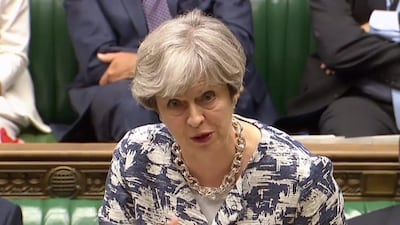British security officials held a series of meetings with the Muslim Council of Britain (MCB) last year, breaking a seven-year deadlock triggered by concerns over the group’s close ties to the Muslim Brotherhood.
The meetings revolved around submissions by the MCB on the government’s flagship anti-extremism policy Prevent and took place at the Home Office, the interior ministry headquarters. The MCB is an opponent of the Prevent approach, which it claims unfairly targets Muslims and in particular focuses on schools as hotbeds of radicalisation.
According to a senior figure with knowledge of the talks, the MCB remains determined to re-establish its place as the premier voice of British Muslims. The source acknowledged that its membership has a strong make-up of Muslim Brotherhood groups. “We have made submissions on the problems of Prevent and these are that there is too much focus on Muslims,” the source told The National.
Once close contacts between the MCB and Whitehall were broken-off by the new Coalition government in 2010, though the source said that talks continued with senior Conservative politicians including the former attorney general Dominic Grieve. “There was a problem with the Conservatives over the statements of some of our members and there being a number of the constituent groups being [Muslim Brotherhood],” he said.
Khalid Mahmood, a Labour party MP, expressed alarm over the meeting, warning that the group must not re-emerge as the “gate-keeper” between Muslims and the British state. "I am extremely concerned," he said. "These people are pushing their Muslim Brotherhood agenda into official policy."
A Home Office statement neither confirmed nor denied that the encounters had taken place but said no one group would be the sole arbitrar of the dialogue between Muslim groups and the government. "We work with a wide range of organisations in this country to prevent people from becoming radicalised; to challenge poisonous extremist narratives and safeguard our young people and our society. Those organisations must be prepared to show leadership, point to solutions and challenge and confront terrorist and extremist ideologies whatever form they take,” a spokeswoman said. "While we do not keep a running commentary on the meetings we hold, we are very clear that those we work with must share our common values.”
An MCB statement also made no denial that meetings had taken place.


